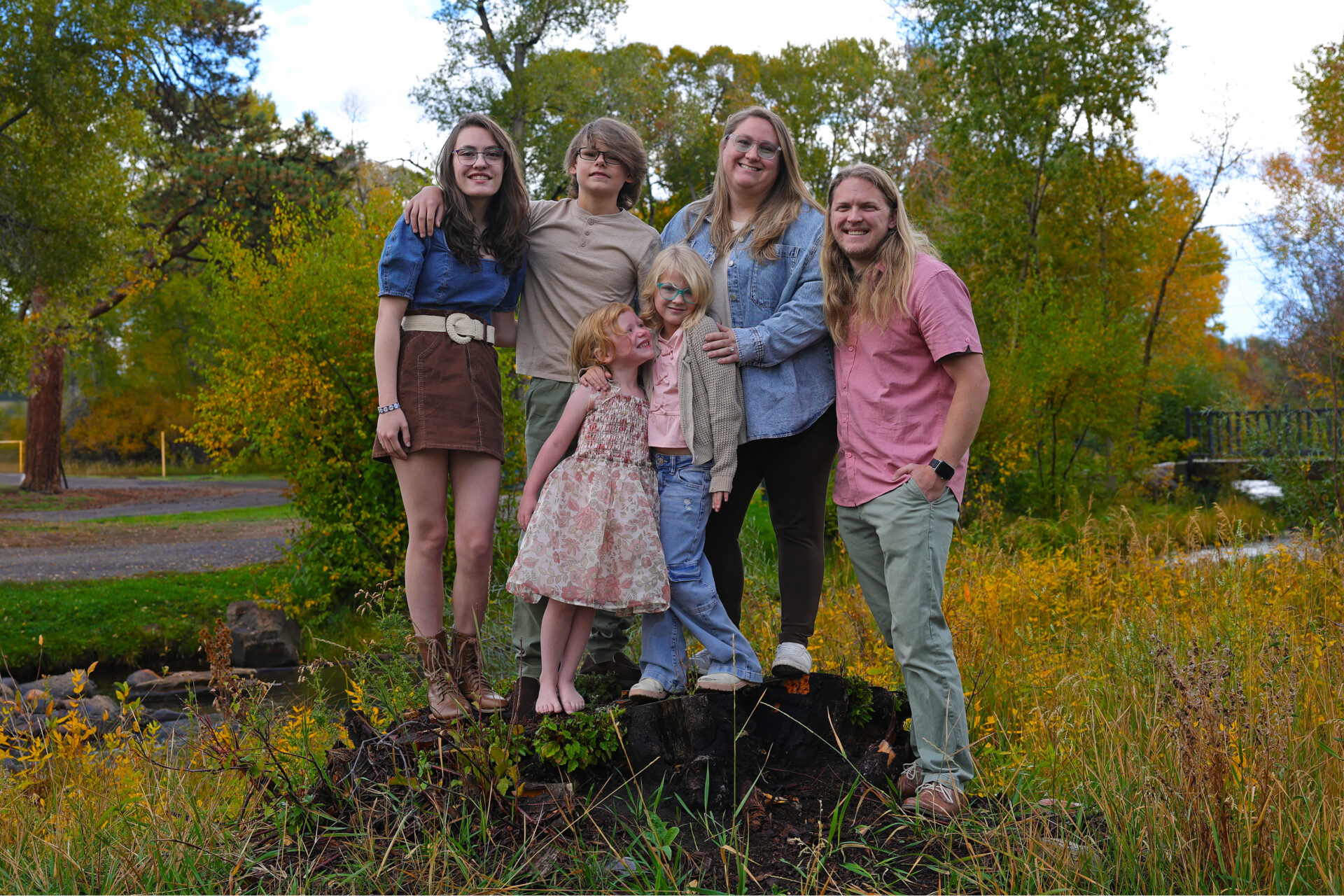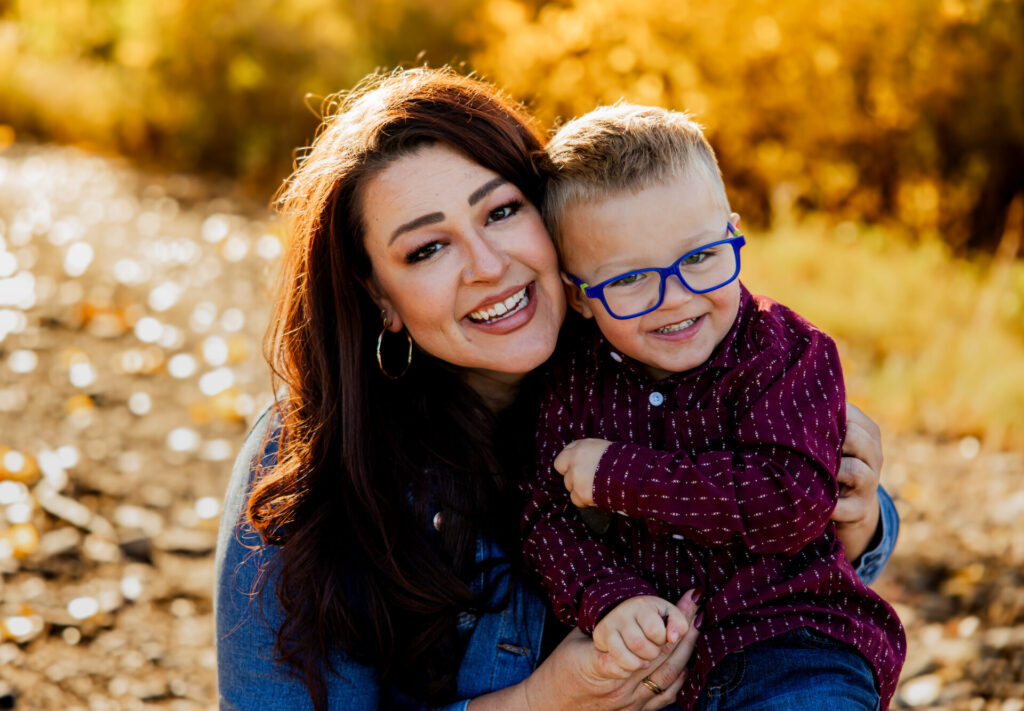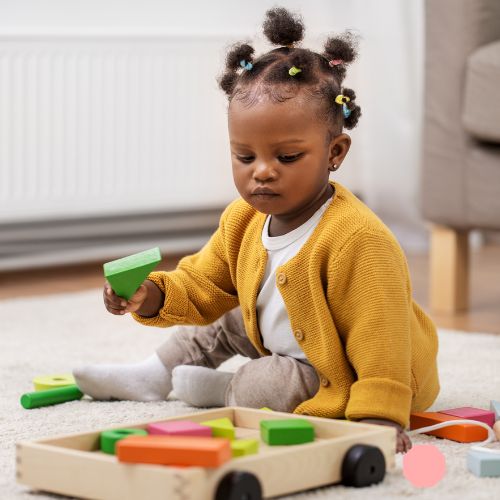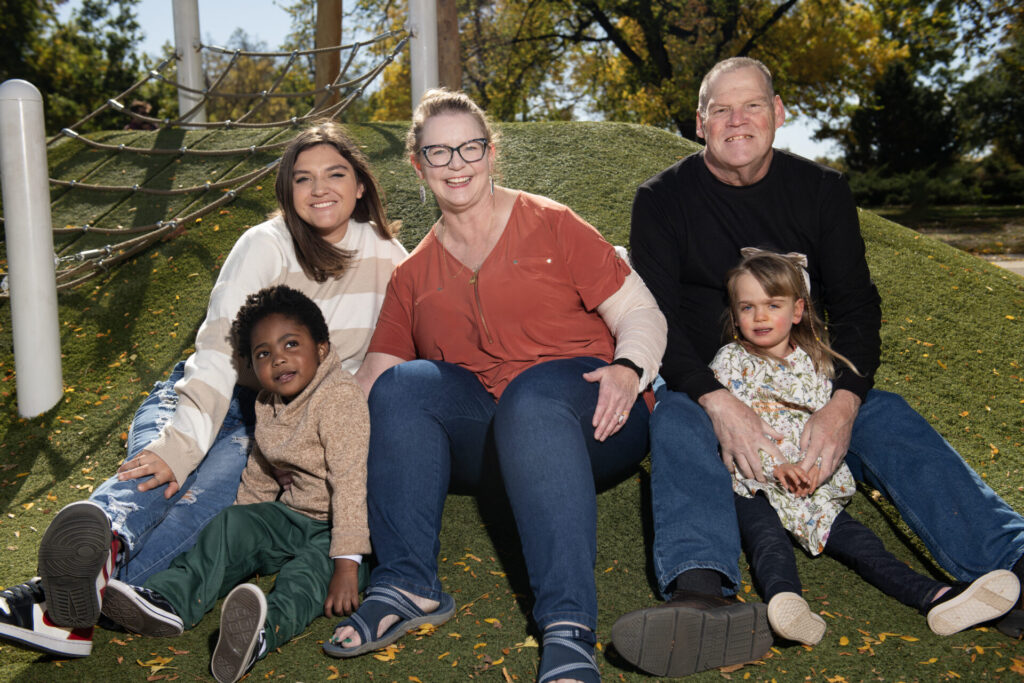A Journey of Love, Resilience, and Neurodiversity in Foster Care and Adoption

Hannah and Blake, based in Durango, have embraced a journey that began with a deep-seated desire to provide a loving home for children in need, a desire that has shaped their lives and the lives of their four children. For Hannah, the path to foster care and adoption was almost predetermined. Her grandparents were foster parents, and her own parents informally took in children. She made it clear to Blake early in their relationship that fostering and adopting were non-negotiable.
When Hannah met Blake at 18, she told him, “If you don’t want to foster or adopt, we shouldn’t waste our time.”
He did eventually agree, and Hannah and Blake got married at 20 years old and started their family with their biological daughter Tyler, who is now 7. Not long after, they became foster parents too. Hannah and Blake began fostering half-siblings, 17-year-old Lilly and her half-brother 12-year old Luke, both of whom they later adopted. Most recently, they added 5-year old Harley to their family through private adoption, whose neurodiversity added a new layer to their family dynamics.
Despite experiencing some difficulties in their first adoptions from foster care, Hannah and Blake found joy in witnessing their children grow, advocate for themselves and express their desire for a family. They emphasize the importance of acknowledging both the loss and the gain inherent in adoption.
“I would say the joy of it was watching both of them say this is what we want and seeing them grow enough to feel confident to say what they wanted and to advocate for themselves,” said Hannah. “They were very timid and shy and scared of adults at that point, so for both of them to say like this is what we want was a big deal.”.
A remarkable aspect of the family’s journey is their embracing neurodiversity. Both Hannah and Blake were recently diagnosed with autism. Hannah, Blake, Lilly, Luke and Tyler also have ADHD. Their 5-year-old daughter Harley is autistic, and their oldest daughter, Lilly, and biological daughter, Tyler, are currently being evaluated for autism. This personal understanding gives them a unique advantage in supporting their children’s diverse needs, helping them identify triggers and find solutions.
“That’s the fun thing with neurodiversity, with things like autism is it really shows up differently in everyone, what bothers them and what is a struggle, so there’s a lot of trial and error and trying to be more aware,” said Blake. “There’s a lot of self-awareness you have to have. It’s always helpful to get a better understanding of the brain and especially how the brain functions differently with that particular disorder.”
Hannah and Blake encourage focusing on growth and progress, rather than solely on what hasn’t happened yet, especially with the societal stigmas surrounding children with special needs. They advocate for having expectations for children and encouraging them, even if those expectations need to be tempered with understanding.
“You should have expectations, expect them to be able to do these things, and then temper your expectations if they can’t,” Blake advised. “It’s important to encourage them that they are capable of doing things and capable of attaining those things and when they fall short finding the encouragement of what progress was made.”
Hannah and Blake celebrate every small achievement, even throwing weekly “parties” for their youngest. They focus on celebrating their children where they are, not where society expects them to be. Teamwork is paramount, with Hannah and Blake consistently backing each other up in front of the children and communicating constantly.
“It’s definitely just a lot of celebrating where we’re at and not caring if it doesn’t seem normal,” Hannah explained. “It’s just really trying to just have fun with them and not always focus on all the hard things. It’s okay to have the hard things and to work through that, but to celebrate the good just as much.”
They have strong support system, including Hannah’s parents and grandparents, as well as a community of other foster parent friends and church friends. This network allows them to ensure each child’s needs are met, especially during challenging times.
“We’re very blessed to have the people who can help us because there are definitely moments where all four of them are suddenly needing some pretty intense stuff. To be able to have people to call that we can say like, ‘Okay, we need you to help the kid with this thing,’ is a really big deal,” said Hannah.
Hannah and Blake have fostered meaningful connections with their children’s birth families. They developed a close relationship with their older children’s maternal grandmother, who became family to all their children. Her unexpected passing was a significant loss for everyone. They also have a strong bond with their youngest daughter’s birth mother, who was 14 when she had Harley. They communicate regularly, offering support and love.
“Their grandma was always involved. In the beginning, her and I did not get along very well at all, but we ended up becoming really close. I would call her if I needed help with the kids and we saw her every week. It became this really beautiful relationship,” said Hannah of their older children’s maternal grandmother. “She 100% became part of our family. She never looked at any of the other kids that were in our families any differently.”
Hannah and Blake’s family’s story is a beautiful illustration of how love, dedication, and a strong support system can create a nurturing environment where children can thrive, grow, and heal, regardless of their past or their unique needs. They offer powerful advice to other families considering foster care or adoption.
“I would say know that it’s going to be hard and keep going anyway,” added Hannah. “It’s never not hard, but when you just keep going and you keep finding the resources and you keep finding the people, you keep finding the different tools, watching kids take those in and grow and learn and achieve things that other people never thought they would ever achieve, it is incredible.”
“It’s going to take everything you’ve got and probably a lot more that you didn’t even realize you had, but what you’ll see in yourself and what you’ll see in these kids is all very much worth it,” Blake emphasized.
More Posts







